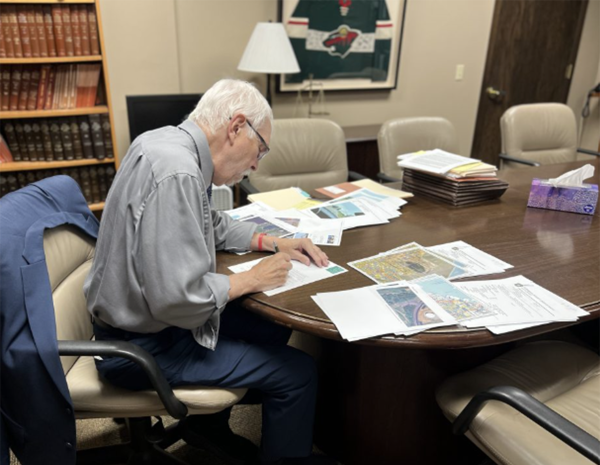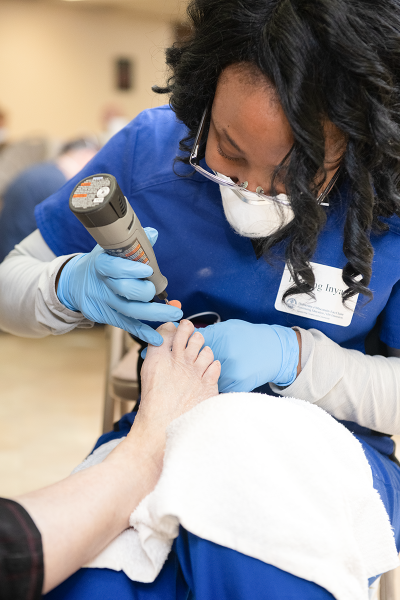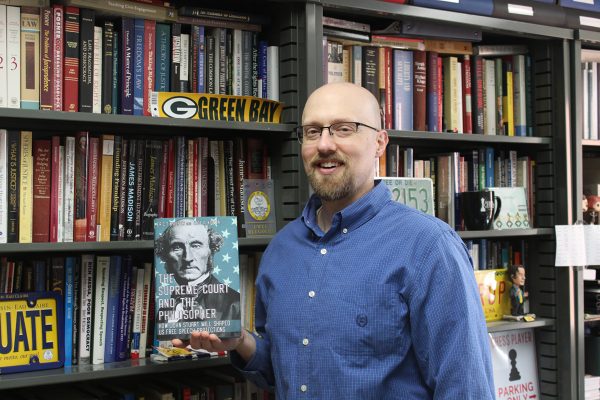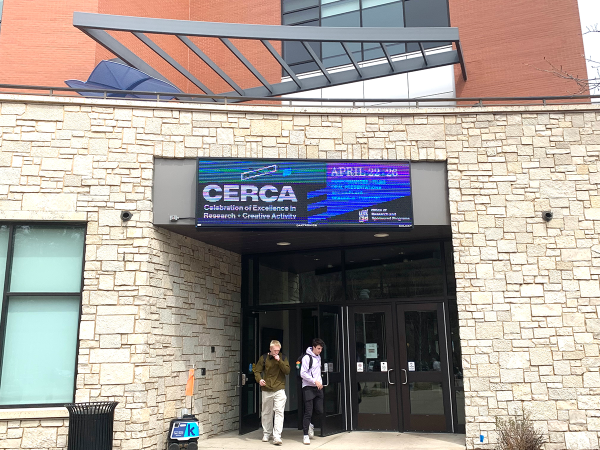Leopold Banquet to highlight iron ore mining
This year’s speakers to focus on long-term effects
February 27, 2014
Proposed changes to the iron mining regulations in Wisconsin could pose serious risks to the groundwater, rivers and other resources in the Penokee range in northern Wisconsin.
The possible long-term effects of this are the topic of discussion at this year’s ninth-annual Aldo Leopold Banquet, held at 2 p.m. on March 6 in the Ojibwe Room.
Assistant Director of Recreation and Sport Facilities and event coordinator Dan Langlois said UW-Eau Claire has held the event each year since 2004 when Gov. Jim Doyle tapped the first weekend in March to honor Aldo Leopold.
The theme this year, Planning Ahead Seven Generations, could be especially important to students, Langlois said. He said it focuses on long-term consequences of iron ore mining and what it could mean for our generation.
Langlois said the banquet is a collaborative event with UW-Eau Claire Environmental Adventure Center and American Indian Studies Program.
Academic program director Deb Barker said AIS was involved last year for the first time.
“We have mutually shared interests in environmental issues and in providing a forum for the public to hear from our students and our guest speakers and their various perspectives on the necessities of caring for the natural resources in our world,” Barker said.
From 2 – 5 p.m., the Ojibwe Room will host a variety of speakers. This forum is free and open to the public. Speakers include: Ashley Duffy UWEC Native American Student Association president, Tracy Hames executive director of the Wisconsin Wetlands Association, Joe Rose president of the Anishinabe Environmental Protection Association and Tribal Elder of the Bad River Band of Lake Superior Ojibwe and Mike Wiggins chairman of the Bad River Band of Lake Superior Chippewa Indians.
“These … are the folks who are looking around their own backyards … at the wetlands and the rivers that they fish in, that their children boat on and swim in, and they’re expressing grave concern about the potential pollution that this iron ore mine might create in the long term,” Barker said.
She said groundwater and air pollution from iron ore processing is a concern.
“(The speakers will talk about) the impacts of mining, tribal questions of reservations that are there, how mining affects the livelihoods of those living on the reservations who hunt and fish in that area,” Langlois said.
Following the speaker series will be a silent auction and dinner. In the past, Langlois said the event has raised money for the biking program on campus and the youth archery program. While the forum is free, tickets must be purchased for the dinner. Tickets are $10 for students and $15 for faculty and community members.
Langlois said the event is a good opportunity for students, faculty and community members to better understand the issue.
“I hope people become better educated and informed about something so vitally important,” Langlois said.
Barker said the media surrounding the mining has been somewhat controlled by the iron ore interest groups and the speaker series is a good way for students and community members to learn more.
“We’re anxious to get the word out,” Barker said. “And anxious for our students to hear the different points of view.”









